Attiah, Robinson, Bacon Among Signatories
Norris Quits as Post Columnist Over Non-Endorsement (Oct. 27 update)
Gun Makers Gave Customers’ Info to Politicians
Asian American With ‘Stubborn Pride’ Says ‘Enough’
Homepage photo: “The truth, no matter how bad, is never as dangerous as a lie in the long run,” a quote from iconic Washington Post editor Ben Bradlee, is up high for all to see in the Post newsroom. (Credit: Ricky Carioti/Washington Post)
[btnsx id=”5768″]
Donations are tax-deductible.

Ann Telnaes drew this cartoon for The Washington Post, which has adopted the slogan “Democracy Dies in Darkness.” She messaged Journal-isms, “I’ll let the cartoon speak for itself.”
Attiah, Robinson, Bacon Among Signatories
Sixteen columnists (and counting) for The Washington Post — including three Black journalists — have denounced the decision by Post owner Jeff Bezos to no longer endorse presidential candidates, calling it “a terrible mistake” that “represents an abandonment of the fundamental editorial convictions of the newspaper that we love.”
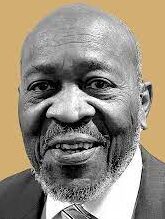 A fourth — Colbert I. King (pictured), a former deputy editorial page editor — messaged Journal-isms Saturday, “I don’t disagree with their position, having personally participated in the drafting of several Post presidential endorsements. Guess I was overlooked or ignored. Tends to happen when you’re 85 and in the corner.”
A fourth — Colbert I. King (pictured), a former deputy editorial page editor — messaged Journal-isms Saturday, “I don’t disagree with their position, having personally participated in the drafting of several Post presidential endorsements. Guess I was overlooked or ignored. Tends to happen when you’re 85 and in the corner.”
Post publisher Will Lewis announced the decision Friday, prompting a firestorm that included the resignation of at least one editor and the cancellation of as many as 2,000 subscriptions, according to news reports.
“Angry readers and sources flooded the email inboxes of numerous staffers with complaints,” Manuel Roig-Franzia and Laura Wagner reported for the news organization.
Oliver Darcy reported for his Status newsletter Friday, “David Shipley, who heads The Post’s opinion section, said in a note to his enraged staff, which I obtained, that he will schedule a town hall to discuss the matter with them. Executive Editor Matt Murray, confronted during a meeting by his own furious news staff, told his troops that he was not consulted on the decision and only learned about it Thursday night, people familiar with the matter said.”
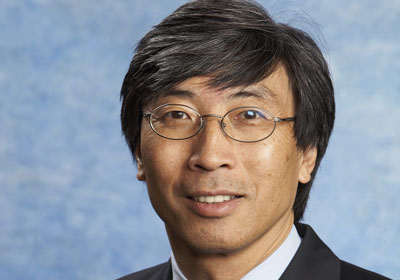 Bezos’ action followed a similar decision last week by fellow billionaire Patrick Soon-Shiong (pictured) to forgo a presidential endorsement at the Los Angeles Times, leading some commentators to paint the two decisions as kowtowing to business interests that might be harmed if they backed Vice President Kamala Harris, the Democrat, should former president Donald Trump, the Republican, be elected.
Bezos’ action followed a similar decision last week by fellow billionaire Patrick Soon-Shiong (pictured) to forgo a presidential endorsement at the Los Angeles Times, leading some commentators to paint the two decisions as kowtowing to business interests that might be harmed if they backed Vice President Kamala Harris, the Democrat, should former president Donald Trump, the Republican, be elected.
“Ian Bassin, a democracy expert, calls these moves ‘anticipatory obedience’: fear by owners that if Trump wins he could take vengeance on companies that cross him,” Sewell Chan wrote for Columbia Journalism Review. “They noted that the leadership at CNN and the Post changed after the Trump administration tried to block the takeover of CNN’s parent company and tried to deny a cloud computing contract for Amazon, Bezos’s company.”
David Folkenflik reported for NPR, “Post owner Bezos, the Amazon founder and one of the world’s richest people, has major contracts before the federal government in his other business operations, with billion-dollar implications affecting Amazon’s shipping business and cloud computing services as well as his Blue Origin space company.”
Just three weeks ago, the Center for Journalism & Democracy at Howard University, led by journalist Nikole Hannah-Jones, held an all-day conference for journalists to “gain insights and skills necessary to navigate and report on oligarchy and its influence in contemporary American society.”
This is what Oligarchy is about. Jeff Bezos, the 2nd wealthiest person in the world and the owner of the Washington Post, overrides his editorial board and refuses to endorse Kamala.
Clearly, he is afraid of antagonizing Trump and losing Amazon’s federal contracts. Pathetic. https://t.co/t2e8e4iJHK
— Bernie Sanders (@BernieSanders) October 25, 2024
Jeffrey A. Winters, Northwestern University professor and author of the 2011 book “Oligarchy,” said at that event, “an oligarch is simply someone who is empowered by wealth and they deploy their wealth to influence politics, and one of the most important things that oligarchs do is they engage in something called wealth defense . . . it’s something that if you happen to be tremendously wealthy you focus on; it becomes an obsession.”
The columnists’ statement, posted on the Post website but not included in Saturday’s print edition, reads:
“The Washington Post’s decision not to make an endorsement in the presidential campaign is a terrible mistake. It represents an abandonment of the fundamental editorial convictions of the newspaper that we love. This is a moment for the institution to be making clear its commitment to democratic values, the rule of law and international alliances, and the threat that Donald Trump poses to them — the precise points The Post made in endorsing Trump’s opponents in 2016 and 2020.
“There is no contradiction between The Post’s important role as an independent newspaper and its practice of making political endorsements, both as a matter of guidance to readers and as a statement of core beliefs. That has never been more true than in the current campaign. An independent newspaper might someday choose to back away from making presidential endorsements. But this isn’t the right moment, when one candidate is advocating positions that directly threaten freedom of the press and the values of the Constitution.”
Washington Post editor-at-large Robert Kagan resigns over Jeff Bezos’ decision. He explains why to CNN’s Erin Burnett. (Credit: CNN/YouTube)
Black journalists Karen Attiah, Perry Bacon Jr. and Eugene Robinson were among those who signed, along with Matt Bai, Max Boot, E.J. Dionne Jr., Lee Hockstader, David Ignatius, Heather Long, Ruth Marcus, Dana Milbank, Alexandra Petri, Catherine Rampell, Jennifer Rubin, Karen Tumulty and Erik Wemple. In addition, Tumulty and Petri wrote separate pieces.
In his own op-ed, Publisher William Lewis wrote, “The Washington Post will not be making an endorsement of a presidential candidate in this election. Nor in any future presidential election. We are returning to our roots of not endorsing presidential candidates. . . . Our job at The Washington Post is to provide through the newsroom nonpartisan news for all Americans, and thought-provoking, reported views from our opinion team to help our readers make up their own minds.”
Lewis referenced the paper’s policy in the decades prior to 1976, when it endorsed Democratic nominee Jimmy Carter. The last time the Post did not endorse a presidential candidate in the general election was 1988.
Benjamin Mullin and Katie Robertson reported for The New York Times, “Mr. Bezos has told others involved with The Post that he is interested in expanding The Post’s audience among conservatives, according to a person familiar with the matter. He has appointed Mr. Lewis — a chief executive who previously worked at the Rupert Murdoch-owned Wall Street Journal — and has informed Mr. Lewis that he wants more conservative writers on the opinion section, the person said.”
On social media, celebrities such as author Stephen King and actor Jeffrey Wright — who is from Washington — said they were canceling their subscriptions, the Post reported.
So much for “Democracy Dies in Darkness”. This is the most hypocritical, chicken shit move from a publication that is supposed to hold people in power to account. https://t.co/xnQMuR4kIJ
— Susan Rice (@AmbassadorRice) October 25, 2024
Susan Rice, who served as national security adviser under President Barack Obama and is a former domestic policy adviser to the Biden White House, wrote on X, “As a DC native and lifelong subscriber to the Post, I’m disgusted. You have lost us.”
Robert Kagan, a longtime Post columnist and editor-at-large in the opinion department, resigned in protest. Many called the non-endorsement especially galling for the newspaper that uncovered the Watergate scandal.
“Washington Post legends Bob Woodward and Carl Bernstein issued a statement saying: ‘We respect the traditional independence of the editorial page, but this decision 12 days out from the 2024 presidential election ignores the Washington Post’s own overwhelming reportorial evidence on the threat Donald Trump poses to democracy.
“Under Jeff Bezos’s ownership, the Washington Post’s news operation has used its abundant resources to rigorously investigate the danger and damage a second Trump presidency could cause to the future of American democracy and that makes this decision even more surprising and disappointing, especially this late in the electoral process.’ ” the Post’s Manuel Roig-Franzia and Laura Wagner reported.
Donald Graham, whose company sold the newspaper to Bezos in a $250 million deal in 2013, messaged Journal-isms Saturday, “I’m not commenting. That’s been my policy on anything related to the Post since 2013.”
Meanwhile in Los Angeles, “Times owner Dr. Patrick Soon-Shiong said that his decision not to offer readers a recommendation would be less divisive in a tumultuous election year,” James Rainey reported Friday for the Times.
“ ‘I have no regrets whatsoever. In fact, I think it was exactly the right decision,’ he said in an interview with The Times on Friday afternoon. ‘The process was [to decide]: how do we actually best inform our readers? And there could be nobody better than us who try to sift the facts from fiction’ while leaving it to readers to make their own final decision.
“He said he feared that picking one candidate would only exacerbate the already deep divisions in the country.
“Members of the editorial board protested that the non-endorsement was out of step with recent precedent at the newspaper, which has picked a presidential candidate in every election since 2008, and with The Times’ previous editorial position, which has been ardently opposed to former President Trump.
“Editorials Editor Mariel Garza resigned Wednesday as a result of the decision. Editorial board members Robert Greene and Karin Klein tendered their resignations from The Times the following day. Greene won the Pulitzer Prize for editorial writing in 2021 for his writing about criminal justice reform. . . .”
- Leonard Downie Jr., Washington Post: A second Trump presidency would be a disaster for the news media (May 21)
- Ashleigh Fields, The Hill: Marty Baron on Post endorsement choice: ‘This is cowardice’
- Dan Froomkin, Salon: Billionaires have broken media: Washington Post’s non-endorsement is a sickening moral collapse
- Drew Goins, Washington Post: The Post endorses no one for president
- Soumya Karlamangla and Shawn Hubler, New York Times: Daughter of L.A. Times Owner Says Endorsement Decision Stemmed From Harris Stance on Gaza War
- Benjamin Mullin and Katie Robertson, New York Times: Inside The Washington Post’s Decision to Stop Presidential Endorsements (Oct. 27)
- Justin Peters, Slate: Democracy’s Death in Darkness
- Chris Quinn, cleveland.com: The Washington Post, LA Times and New York Times are wrong; but we’re still endorsing: Letter from the Editor
- Michael Schaffer, Politico: The Post’s Non-Endorsement: Poor Timing, Worse Message
- Max Tani, Semafor: Editor resigns, subscribers cancel as Washington Post non-endorsement prompts crisis at Bezos paper
- Washington Post Guild, X: On the Washington Post’s decision to not endorse a presidential candidate
- Gene Weingarten, Substack: Courage & Cowardice
- Kate Woodsome, Substack: Bezos, The Post and a totalitarian drift
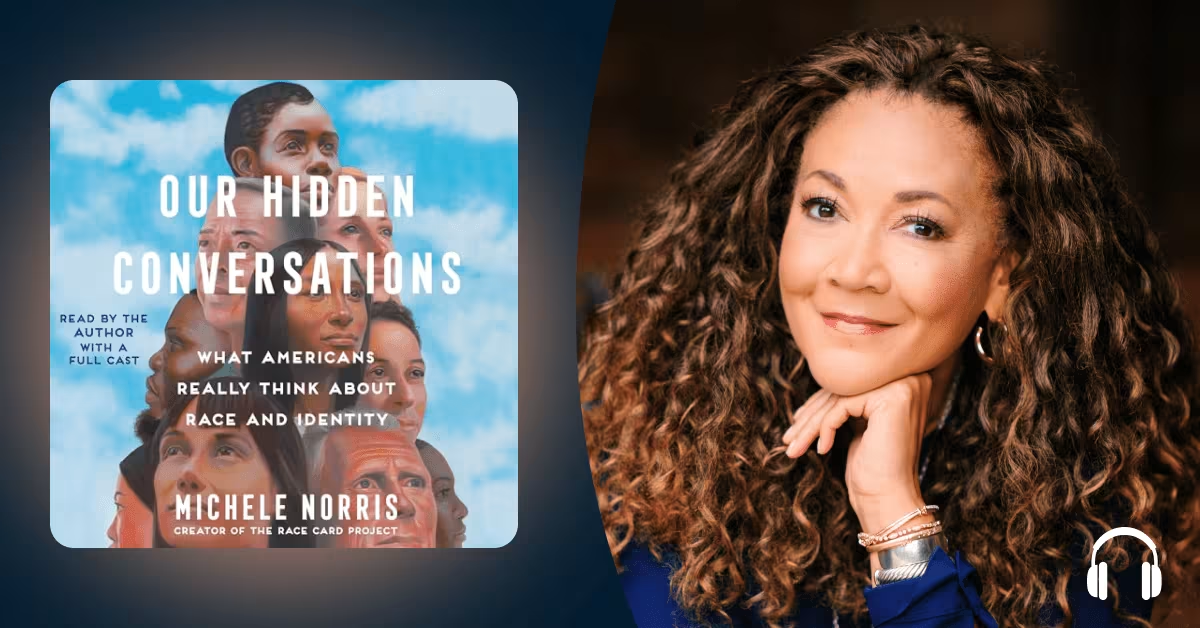
In January, Audible published “Our Hidden Conversations,” calling it “the culmination of an unprecedented project 14 years in the making. The result: an audiobook that feels like eavesdropping on America.” (Credit: Audible)
Norris Quits as Post Columnist Over Non-Endorsement
Michele Norris, a Washington Post Opinions contributor and consultant who founded “The Race Project” and has worked at the Post, NPR and ABC News, tweeted Sunday that she had resigned as a Post columnist over management’s decision not to endorse in the presidential race.
“The reason given in no way justifies why the newspaper would abdicate its role in informing and guiding voters as it has done in making endorsements in other key races this year, and as it has done in endorsing the candidates who were running against Trump in both 2016 and 2020.
“To be clear, a newspaper does not forfeit its independence in making endorsements,” Norris continued in the thread. “An endorsement provides guidance based on muscular and independent analysis. And it provides a window into an institution’s core values.”
Jonathan Capehart, an associate editor of The Washington Post who was a 15-year member of its editorial board, expresses his alarm over the “abominable” Post non-endorsement on his MSNBC show. (Credit: YouTube)
Norris joined the Post opinions section in 2019, hired by the late editorial page editor Fred Hiatt.
In 2022, she won the 2022 Goldsmith Career Award and was described as one “whose career in print, television, and radio has made her a leading voice on race, identity, and the nature of modern American democracy.”
“The music of Michele’s writing is matched by its moral power,’” Shorenstein Center Director Nancy Gibbs said in the announcement. “She picks up the hard questions and examines them fearlessly, in a way that has made her one of the great, wise voices of this generation.”
In 2009, Norris was named Journalist of the Year by the National Association of Black Journalists, and she was a 2015 Joan Shorenstein Fellow at the Shorenstein Center on Media, Politics and Public Policy. She is a judge for the Chancellor Awards and a board member for the Peabody Awards. She is also a board member of the President Obama oral history project at Columbia University and the storytelling committee for the Obama Presidential Center under construction in the South Side of Chicago, among other roles and honors.
As the Goldsmith announcement also noted, ” Norris is also the Founding Director of The Race Card Project, a Peabody Award-Winning narrative archive where people around the world share their experiences, questions, hopes, dreams, laments, and observations about identity – in just six words –as the starting point for conversations about race. Norris is also a National Geographic Storytelling Fellow.
“She is the author of The Grace of Silence, A Memoir where Norris turns her formidable interviewing and investigative skills on her own background to unearth long-hidden family secrets that raise questions about her cultural legacy and shed new light on America’s complicated racial history. . . .”
Norris’ most recent Post column ran Aug. 21 and was about Michelle Obama‘ ‘s appearance at the Democratic National Convention, writing that “Her speech will be studied for years because it works on many levels.”
Norris said she considered Obama a friend.
Norris responded to comments about her post on X with, “Thanks for all your kind words. Not yet sure what’s next for my writing. Considering Substack, but for now I’ll keep busy with other projects. The podcast (Your Mama’s Kitchen) and http://theracecardproject.com where I regularly engage w/ all kinds of people- even those I disagree with.”
Separately, Ross A. Lincoln reported for The Wrap on Friday that the web publication had learned that “Alongside its endorsement of Kamala Harris, the Los Angeles Times editorial board had also planned a multi-part series against Donald Trump before the whole thing was quashed by owner Patrick Soon-Shiong.
“According to internal memos viewed by TheWrap, the series, tentatively called ‘The Case Against Trump,’ would have [run] throughout this week. The endorsement of Kamala Harris would then have been published on Sunday. . . . ” (Added Oct. 27)
- Will Bunch, Philadelphia Inquirer: Billionaire cowards at Washington Post, L.A. Times show what life under a dictator is really like (Oct. 27)
- Isaac Chotiner, New Yorker: Marty Baron on the Washington Post’s “Spineless” Endorsement Decision (Oct. 27)
- Ellen Cushing, The Atlantic: Don’t Cancel The Washington Post. Cancel Amazon Prime.
- Jarvis DeBerry, MSNBC: The rich owners of The Washington Post and L.A. Times just capitulated to Trump
- Karen Klein, Hollywood Reporter: Los Angeles Times Editorial Writer: Why I Resigned Over the Endorsement Call (Guest Column) (Oct. 27)
- PEN America: Statement on Los Angeles Times and Washington Post Pulling Presidential Endorsements (Oct. 28)
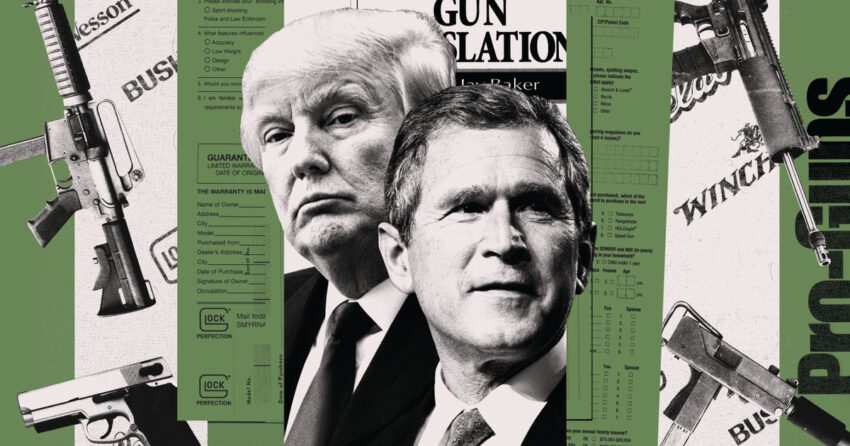
Illustration by Joan Wong for ProPublica
Gun Makers Gave Customers’ Info to Politicians
“For years, America’s most iconic gun-makers turned over sensitive personal information on hundreds of thousands of customers to political operatives,” Corey G. Johnson (pictured, below) reported Thursday for ProPublica.
 “Those operatives, in turn, secretly employed the details to rally firearm owners to elect pro-gun politicians running for Congress and the White House, a ProPublica investigation has found.
“Those operatives, in turn, secretly employed the details to rally firearm owners to elect pro-gun politicians running for Congress and the White House, a ProPublica investigation has found.
“The clandestine sharing of gun buyers’ identities — without their knowledge and consent — marked a significant departure for an industry that has long prided itself on thwarting efforts to track who owns firearms in America.
“At least 10 gun industry businesses, including Glock, Smith & Wesson, Remington, Marlin and Mossberg, handed over names, addresses and other private data to the gun industry’s chief lobbying group, the National Shooting Sports Foundation. The NSSF then entered the gun owners’ details into what would become a massive database.
“The data initially came from decades of warranty cards filled out by customers and returned to gun manufacturers for rebates and repair or replacement programs.
“A ProPublica review of dozens of warranty cards from the 1970s through today found that some promised customers their information would be kept strictly confidential. Others said some information could be shared with third parties for marketing and sales. None of the cards informed buyers their details would be used by lobbyists and consultants to win elections. . . .”
Asian American With ‘Stubborn Pride’ Says ‘Enough’
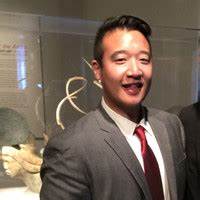 “Recently I accepted a buyout and left my job as a columnist at the Los Angeles Times after 13 years reporting on Southern California,” Frank Shyong (pictured) wrote Tuesday on Substack. “I’ve spent the last month or so struggling to explain why, both to myself and others.
“Recently I accepted a buyout and left my job as a columnist at the Los Angeles Times after 13 years reporting on Southern California,” Frank Shyong (pictured) wrote Tuesday on Substack. “I’ve spent the last month or so struggling to explain why, both to myself and others.
“There are all too many reasons to leave after 13 years of watching the paper be devastated by cuts and bad leadership. The trouble is deciding which to share, because I have no desire to bring harm to my former newsroom.
“I don’t mind sharing that I struggled as a columnist. I knew early on that I would probably fail to live up to people’s expectations of what a columnist was, but I thought my failure could be instructive or at least interesting. A clash of values was inevitable. I was the first Asian American columnist in newsroom history, and at the time I also became the youngest columnist on staff.
“Some coworkers went out of their way to let me know what they thought of my promotion. A few months after my job was announced, I was on a Festival of Books panel moderated by a fellow columnist so unfamiliar with my work that he described it with the following: ‘when he writes about ethnic food, you can just smell the Chinese food cooking.’ I have never been a food writer, and cannot recall an instance in which I described the smell of any kind of food cooking. His first question was more of an accusation. ‘You know you’re too young to be doing this, right?’ He said, to chuckles from the audience, who like him, were mostly old and white.
“A manager once told me that a columnist is supposed to be a representative of the newsroom. But the newsroom never agreed to be represented by me, and I never agreed to represent any other values but my own. And from the beginning, mine were always different.
“I began to write about Asian American communities in Southern California at a time when journalism about identity and race was seen as a backwater beat. I [persisted] in doing so even though an older colleague I respected told me to ‘drop the race stuff.’ I took a stubborn pride in forcing people to acknowledge the relevance and importance of the communities I was writing about. I quickly learned that I wasn’t always allowed to decide what was interesting and newsworthy about these communities. I, and most other reporters who were not white, were considered biased by default because we sometimes shared a broad demographic category with the people we wrote about. . . .”
The Times’ owner, Patrick Soon-Shiong, and its top editor, Terry Tang, are Asian American.
(More to come)
To subscribe at no cost, please send an email to journal-isms+subscribe@groups.io and say who you are.
Facebook users: “Like” “Richard Prince’s Journal-isms” on Facebook.
Follow Richard Prince on Twitter @princeeditor
Richard Prince’s Journal-isms originates from Washington. It began in print before most of us knew what the internet was, and it would like to be referred to as a “column.” Any views expressed in the column are those of the person or organization quoted and not those of any other entity. Send tips, comments and concerns to Richard Prince at journal-isms+owner@
View previous columns (after Feb. 13, 2016).
View previous columns (before Feb. 13, 2016)
- Diversity’s Greatest Hits, 2018 (Jan. 4, 2019)
- Book Notes: Is Taking a Knee Really All That? (Dec. 20, 2018)
- Book Notes: Challenging ’45’ and Proudly Telling the Story (Dec. 18, 2018)
- Book Notes: Get Down With the Legends! (Dec. 11, 2018)
- Journalist Richard Prince w/Joe Madison (Sirius XM, April 18, 2018) (podcast)
- Richard Prince (journalist) (Wikipedia entry)
- February 2018 Podcast: Richard “Dick” Prince on the need for newsroom diversity (Gabriel Greschler, Student Press Law Center, Feb. 26, 2018)
- An advocate for diversity in the media is still pressing for representation, (Courtland Milloy, Washington Post, Nov. 28, 2017)
- Morgan Global Journalism Review: Journal-isms Journeys On (Aug. 31, 2017)
- Journal-isms’ Richard Prince Wants Your Ideas (FishbowlDC, Feb. 26, 2016)
-
Richard Prince with Charlayne Hunter-Gault, “PBS NewsHour,” “What stagnant diversity means for America’s newsrooms” (Dec. 15, 2015)
- Book Notes: Journalists Follow Their Passions
- Book Notes: Journalists Who Rocked Their World
- Book Notes: Hands Up! Read This!
- Book Notes: New Cosby Bio Looks Like a Best-Seller
- Journo-diversity advocate turns attention to Ezra Klein project (Erik Wemple, Washington Post, March 5, 2014)
Page view counter was at 812 at 6:04 p.m. on Oct. 27, 2024. but 785 at 7:22 p.m.

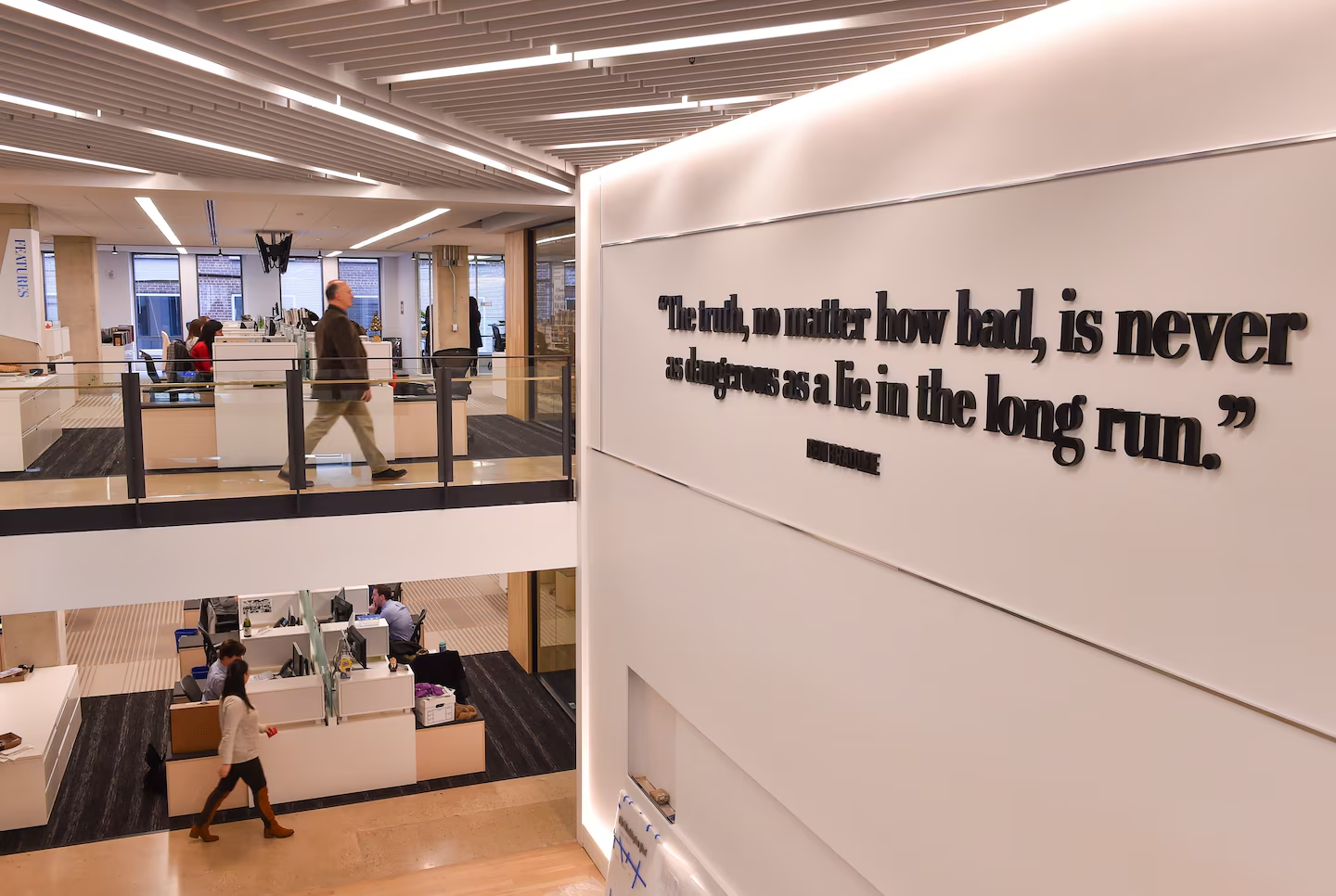
3 comments